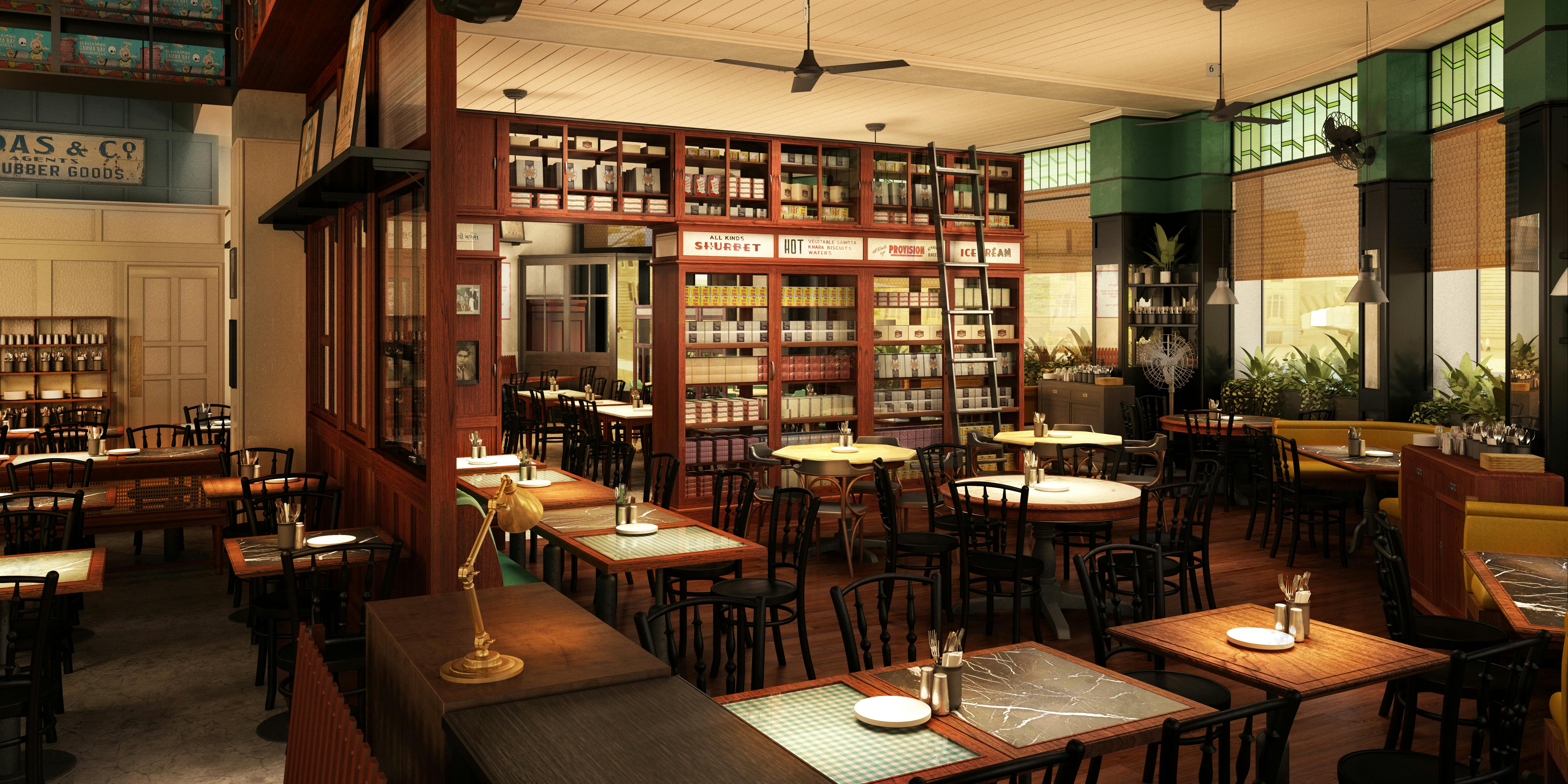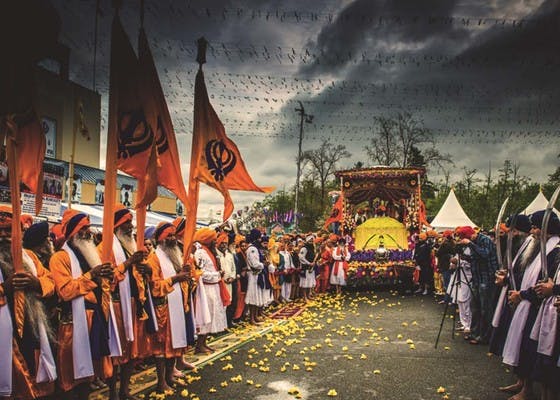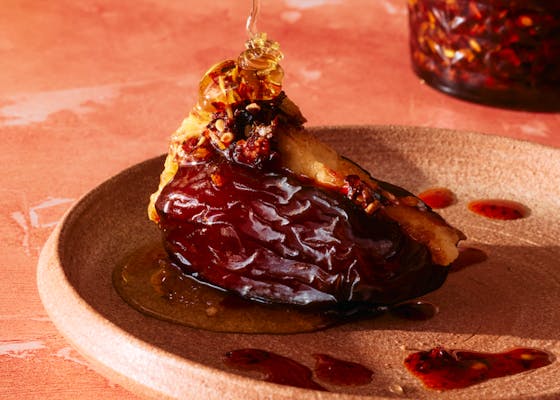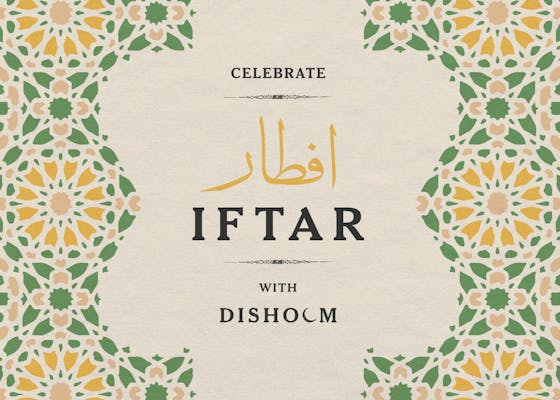
Everything Dishoom does shares our deep love for Bombay – its food, its history, its culture and its quirks. Each Dishoom has a story – a founding myth of sorts – deeply rooted in Bombay history and specific to each location.
Last year, to celebrate the opening of Dishoom Birmingham, we launched an exciting writing competition with our good friends at Birmingham Stories, part of the National Literacy Trust. They’re an awesome organisation that campaign to raise literacy levels and change life stories of young people and adults across the city.
Entrants were tasked with writing a story inspired by the café’s founding myth: the story of Roda Irani. Drawing on Birmingham’s history as the “city of a thousand trades”, the myth explores the unique parallels between the markets of Bombay and Birmingham and the importance of both city’s commercial pasts.
Sincere thanks to everyone who submitted a story, we were delighted to receive such boundlessly imaginative tales. Entries were judged by a panel of readers from the Literacy Trust and two winners were selected, one adult and one young person. We would like to extend a big round of applause to Iona Mandal and Sonia Gill, our competition winners, who impressed us enormously with their engaging stories. Congratulations as well to our talented runners-up Katalin Patnaik and Areesh Saqib. Do read on...
BOMBAY, MARCH 1953 – IN WHICH RODA IRANI FINDS HER INDEPENDENCE AND HER VOICE.
Crisp and organised, Roda Irani leads her daughter through the narrow gullies of Swadeshi Market. “Come, let us get to the café.”
They begin to walk the length of the market, shoulder to hip. Each gully is lined with stalls separated by thin partitions or simple thick cloth. Roda and Farrah navigate past shoppers haggling over the price of scissors, padlocks, bolts of cloth – an array of products with one thing in common; all made by Indian hands, on Indian soil.
The lights, sounds, colours, and hubbub of the south Bombay bazaar overwhelm young Farah. Roda holds her daughter’s hand tight. They stop outside a vintage Irani café, an enamouring aroma of freshly baked goodies enlivening their senses. A Parsi name on a dusty, peeling signboard catches Farah’s eye. Brun Maska. Open 7-11 a.m., all days. They walk in, relieved to escape the dust and sweltering heat. Ceiling fans whir above crowded, chattering tables. Waiters serve customers from all walks of life, background, religion. Dishes touched by wrinkled hands of master bakers promoting tolerance in an all-inclusive, shared place. The wall adorns cultural tributes: a sepia portrait of Gandhi and Mountbatten, reminder of the Raj, beside a gilt-framed prophet Zarathustra. Farah spots a twinkle in Roda’s eyes. “Fancy a story?” Farah gleefully agrees, delighted. So Roda begins an enchanting tale over Irani chai and brun maska – fluffy white, freshly baked buns, slathered in melted butter while Farah sips a Pallonji’s raspberry drink.
“When grandpa was alive, someone special visited our Irani café. Dressed in white loincloth and circle-framed glasses, tired body resting on a wooden stick, he asked for a cup of tea. Kind-hearted Papa gave him a melt-in-the-mouth brun with chai. Overwhelmed, he said: “There are people in this world so hungry, that God cannot appear to them except in the form of bread”. “May your food go beyond the shores of Bombay.” Like the story Parsis know, Papa promised to spread our flavoursome food, as sugar does to milk - dissolve, sweeten, never overflow. After your birth, my marriage broke. Papa left the world, dreams unfulfilled. Despite obstacles, I sailed to England with you, determined to start afresh and build my Parsi restaurant, symbol of our culture and cuisine. Finally, the day arrived.”
*********
It is a busy day at Maska to Margarine, Birmingham’s only place for authentic Parsi cuisine, located centrally, ensuring longevity and prosperity. In a décor of engraved dark-wood panelling, dappled mirrors, Scandinavian bentwood chairs, chipped mosaic flooring, Gingham tablecloths and celebrity diner photographs, Farah helps ageing Roda take orders – sali murghi, dhansak, akuri, patra ni machchi, lagan-nu-custard and mava cakes. Her sweat, tears, and endurance blending Parsi cuisine with local taste, in Birmingham, the Heart of England, twinning Bombay’s multicultural, industrial heritage. Roda rushes to the kitchen for last-minute instructions, briskly laying the finest cutlery and menu. The Independent food critic is expected anytime.
Farah welcomes him with a smile. Strangely, he seems familiar. She recommends gunpowder potatoes and jackfruit biryani; he orders chicken berry pulao instead. Fragrant pilaf rice with moist chicken in tomato sauce, topped with sour cranberries, crunchy cashews, and caramelised onion – chef’s signature, recipe fiercely guarded, legacy dating to her Parsi forefathers. Farah watches. He digs a morsel and licks his lips to ask, “What’s the spice blend? Tastes awfully familiar.” Farah excuses herself to call her mum.
Roda walks and freezes. She stares at him. The man she cooked for before - her daughter’s father, her ex-husband.
BOMBAY, MARCH 1953 – IN WHICH RODA IRANI FINDS HER INDEPENDENCE AND HER VOICE.
Crisp and organised, Roda Irani leads her daughter through the narrow gullies of Swadeshi Market. “Come, let us get to the café.”
They begin to walk the length of the market, shoulder to hip. Each gully is lined with stalls separated by thin partitions or simple thick cloth. Roda and Farrah navigate past shoppers haggling over the price of scissors, padlocks, bolts of cloth – an array of products with one thing in common; all made by Indian hands, on Indian soil.
As they continue to wander the maze like gullies, not knowing where each one my take them, they find their eyes locking onto a glistening treasure trove in the near distance. “Mama, can we please go and have a look.” Seeing the wide eyed excitement in her daughters eyes, Roda takes Farrah by the hand as they head towards the gem like glow.
Upon arriving, they realised that the Indian sun was in fact shining on the most magnificent array of spices that they had ever seen; an elderly man was sat outside “come inside my dears, come take a look and help yourselves” he said.
Small cloth like bags were filled to the brim creating such an aroma that Farrah had not experienced before; peppercorns, cumin, fenugreek seeds, turmeric and more. Roda wandered the store, filling her basket; her mind overcome with recipes from her own childhood; she looked up and came to a standstill, noticing Farrah, fixated on one bag filled with a fine, thread like substance, deep red in colour.
“Mama, what is this, I have never seen this before, can we get some?” Roda responded, “This is saffron my dear child, this is the real treasure of our world”
The elderly shopkeeper wandered over and handed Farrah a thread in the palm of her hand, her eyes lit up as she took her first taste; the sweet, savoury flavour effortlessly encapsulating her taste buds.
He went on to inform them that there was once a local recipe book that had been handed down through generations, speaking of it fondly, he mentioned it was full of the most flavoursome and priceless recipes known to man; by this point Farrah and her mother were sat on stools, completely immersed, allowing their imaginations to create mouth-watering dishes.
Mother and daughter left the store with a bag full of fragrant spices and a rumble in their belly’s; upon arriving at the cafe, they perused the menu, opting for a saffron infused biriyani and with each mouthful, their smiles grew that bit larger. “Mama, it’s like you said, this really is our treasure.”
Roda reached for her purse but noticed something shining from the bottom of her bag. Confused, she pulled out the item and noticed it was a book, a recipe book! “I can’t believe it, it can’t be,” she said, stunned. Upon opening it, she realised that it was in fact the book that the elderly shopkeeper had so lovingly discussed with them; turning each page felt like flicking through history, one that Roda could affectionately relate to.
As the pair walked out, Roda looked up in sheer amazement of what she’d been given; outside, the variety of sounds and colours seemed magnified, the row of Bollywood posters catching her eye, with the exaggerated fight scenes bringing her laughter. “Mama, we should open our very own café, we have to share these spices and delicious recipes” to which Roda replied “My dear girl, let’s, it will be called; Dishoom!”

Vaisakhi, a day marked across India by people of many faiths, is celebrated in the Punjab as the start of the new Harvest. It falls on the 13th or 14th April depending on the calendar for that year.

Spring has gently tiptoed in. As the days lengthen and the sun grows bolder, here’s a glimpse of what we eagerly await in April.

We’re turning page after page of Ayesha Erkin’s recipe book Date of the Day, featuring 30+ recipes for the modest date – timely for breaking fast and after. Our dear friend Ayesha has now kindly shared a recipe for you to make at home. Try it this Iftar or any time you need a salty-spiced sticky treat.

The holy month of Ramadan is upon us, when Muslims around the world fast daily from dawn till dusk. It is a time of private worship and spiritual discipline, but also of shared joy and abundant feasting. Families and communities come together at suhoor, the pre-dawn meal, and at iftar, the evening meal, to break their fasts with copious, delicious dishes. Join us on 7th April for our own Iftar celebration – for an evening of feasting and live music.